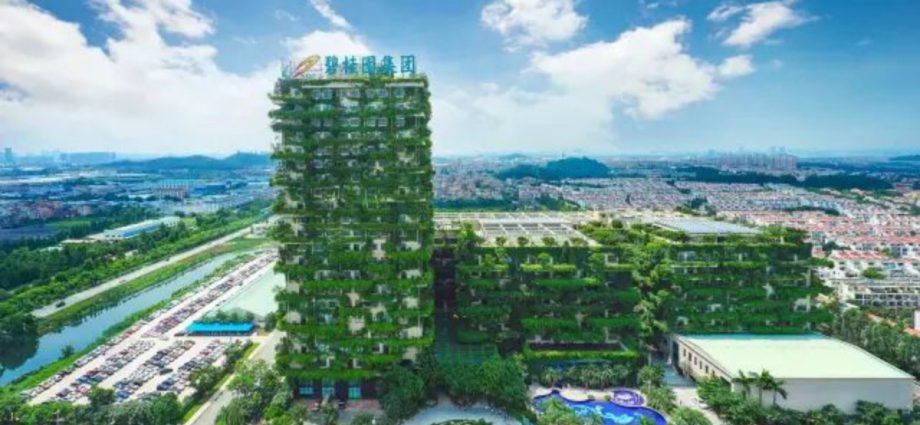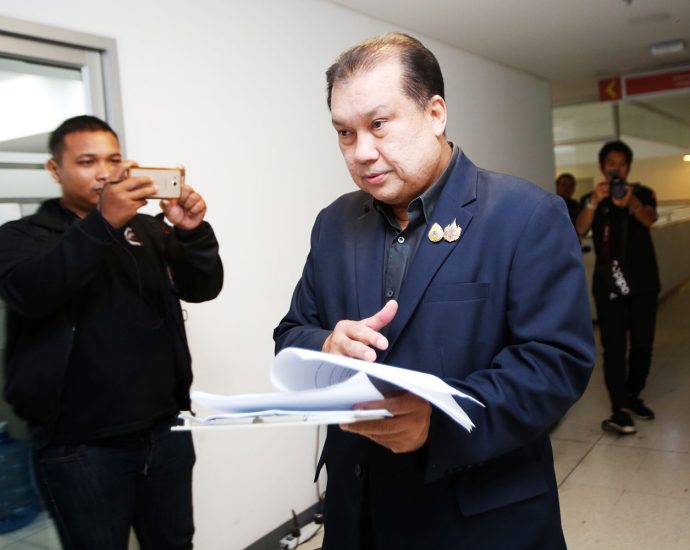Country Gardenâs cash crunch worries homebuyers

The cash crunch at Country Garden, once the largest property developer in China by sales, has worried many homebuyers who have paid for but not yet received their apartments.
Some commentators called on the Chinese government to look into the matter and ensure that the property developers will deliver apartments to buyers.
The calls came after Country Garden failed to pay interest, due Sunday, on two bonds worth a total of US$22.5 million.
Although the company can pay within a 30-day grace period to avoid a default, it still has to repay US$2.9 billion of bonds by the end of this year, according to data compiled by Bloomberg.
Over the past two years, most Chinese property developers have cut their property prices by more than 50% to boost revenue and lower gearing, but many homebuyers remain reluctant to enter the markets as they are suffering from unemployment or otherwise unstable income. They have become very cautious in home purchases since Evergrande Group faced liquidity problems in 2021.
“Don’t let Country Garden collapse!” Wang Xinxi, a Guangdong-based business writer, says in an article published on Wednesday. “For the moment, it’s very important to avoid the default of Country Garden, which will hit the property sector and create a systemic risk to the banking sector.”
“The company has built many properties in the third- and fourth-tier cities but residents there have low incomes,” Wang says. “Many people used savings from parents and relatives to buy their homes. They won’t be able to receive their properties if Country Garden goes bankrupt.”
He says such a crisis will affect other property developers and homebuyers while home owners also cannot sell their properties in the secondary markets.
He criticizes Country Garden and other property giants for having used a high leveraging strategy to boost their sales over many years. He says the only thing that these developers can do now is to sell their apartments at huge discounts to repay debts.
A Shanghai-based commentator using a pen name “Huoyi” published an article with the title “Country Garden is a much bigger crisis than Evergrande” on Wednesday.
“Country Garden said its total assets amounted to 1.54 trillion yuan (US$214 billion) at the end of 2022 while its total liabilities were 1.23 trillion yuan. It seems that it had net current assets of more than 300 billion yuan but it’s hard to know whether the company has any hidden debts,” Huoyi says. “Evergrande had once said its liabilities were about 1.8 trillion yuan but it turned out that they reached 2.44 trillion yuan.”
He says Country Garden recorded 668 billion yuan of contract liabilities at the end of last year, meaning that it still owes one million flats to homebuyers.
The writer says there’s no doubt that Evergrande’s founder, Hui Ka-yan, was very extravagant but he spent and invested most of his money domestically and could trace it. He says it is worrying that Country Garden has invested in many overseas property projects, including those in Malaysia, Singapore, Vietnam and Thailand.
First net loss in 15 years
On March 30, Country Garden said its revenue dropped 17.7% to 430.4 billion yuan for the year ended December 30, 2022 from a year earlier. Gross margin fell from 17.74% to 7.64%.
The Fosan-based firm recorded a net loss of 6 billion yuan in 2022, compared with a net profit of 26.8 billion in 2021. It has been the company’s first net loss in 15 years since it was listed in Hong Kong in 2007.
The company had 69,932 full-time employees at the end of last year, down from 100,705 a year earlier.
On Sunday, it failed to pay two dollar-bond coupons. Both bonds, US$500 million each, are listed in Singapore and will mature in 2026 and 2030.
The company said its usable cash has been steadily shrinking, showing “periodic liquidity stress” due to the deteriorating selling and refinancing environment, and the impact of various fund regulations.
CreditSights, a research unit of Fitch Group, says in a research report published on Tuesday that Country Garden’s struggle to address even a modest coupon payment underscores the extent of its cash crunch.
“Country Garden’s ability to remain above water has become increasingly challenging amid poor contracted sales generation, high exposure to lower-tier cities, limited funding avenues and a stretched liquidity position,” it says.
With falling home prices month-on-month across the past few months and faltering economic growth in China, another large developer’s default is the last thing the Chinese authorities need right now, CreditSights says.
It says Country Garden’s woes have spilled over to affect sentiment regarding other property developers and will hurt overall homebuyer sentiment.
A property columnist writes in an article published in May that Country Garden has significantly cut prices for its apartments over the past few years.
He says the company is now selling its apartments at about 6,000 yuan per square meter in a rural area in Guangzhou, down from the peak of 12,000 yuan per square meter in 2018. He says its apartments in a prime site in Dongguan are now priced at 25,000 yuan per square meter, compared with 35,000 yuan per square meter in the past.
He says nearby homeowners were upset by these sales promotions as their property values were dragged down.
Evergrande’s case
In the second half of 2021, Evergrande, the largest Chinese property developer by land bank at that time, had a serious liquidity crunch. Clients of Its wealth management units also complained that they could not get their money back after the products they bought matured.
Evergrande started restructuring its debts early last year in response to the Guangzhou government’s intervention. Hui was ordered by officials to sell his personal assets to repay debt and ensure that his company would continue to deliver apartments to homebuyers.
The company did not announce its 2021 results until July 17, 2023. It lost a combined 803 billion yuan in 2021 and 2022. At the end of last year, it had net current liabilities of 687.7 billion yuan and total liabilities of 2.44 trillion yuan (US$339 billion), which almost hits Hong Kong’s 2022 nominal gross domestic product (US$360 billion).
The company has not yet gone bankrupt and is still negotiating with foreign creditors for a haircut in its debts.
Read: China to boost consumption, private investments
Follow Jeff Pao on Twitter at @jeffpao3

